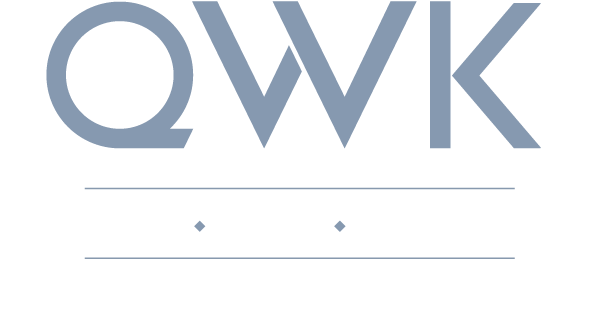
Insurer Notice Obligations and Section 38 Non-Compliance
Under Section 38(8) of the Statutory Accident Benefits Schedule an insurer is required to notify an insured of their position with respect to a Treatment Plan within 10 business days of receipt. The consequences of non-compliance are identified under section 38(11). However, there has been some uncertainty as to how s. 38(11) is to be interpreted. Two recent decisions from the Divisional Court and the LAT provide some clarification to the application of s.38(11) and the consequences of s.38(8) non-compliance.
Section 38(8) of the SABS requires that within 10 business days of receiving a Treatment Plan, the insurer shall provide the insured notice identifying what portion of the plan they agree to pay, do not agree to pay, and the medical and other reasons for not paying.
The consequences of not complying with the notice requirements are set out in section 38(11), which reads as follows:
(11) If the insurer fails to give a notice in accordance with subsection (8) in connection with a treatment and assessment plan, the following rules apply:
1. The insurer is prohibited from taking the position that the insured person has an impairment to which the Minor Injury Guideline applies.
2. The insurer shall pay for all goods, services, assessments and examinations described in the treatment and assessment plan that relate to the period starting on the 11th business day after the day the insurer received the application and ending on the day the insurer gives a notice described in subsection (8). O.Reg. 34/10, s.38(11).
Section 38(11)2 – Kyrylenko v. Aviva Insurance Canada, 2021 ONSC 4929
Despite the mandatory language in s.38(11)2, there was some uncertainty as to how it was to be enforced. Does an insurer’s failure to comply with the notice requirements automatically make any Treatment Plan payable beginning on the 11th business day and ending when the notice requirements are met, regardless of whether or not the Plan is reasonable?
In Kyrylenko v. Aviva Insurance Canada, 2021 ONSC 4929, the Divisional Court helped resolve some of the uncertainty. The decision was an appeal of a LAT reconsideration decision denying benefits to the Appellant under s. 38 of the SABS.
The Divisional Court found that the Adjudicator erred in applying a “reasonableness” standard when enforcing the insurer consequences under s. 38(11) for notice non-compliance.
At paragraph 13 The Honourable Justice McKelvey writes the following:
“However, while the adjudicator notes at para. 13 of his reconsideration decision that there were issues as to when the expenses were incurred, he ignores the fact that some of the expenses were incurred during the time frame covered by s. 38(11). He also states that the proposed expenses were also found not to be reasonable and necessary. In our view he erred in this conclusion because s. 38(11) does not include a requirement that the expenses be reasonable or necessary. Instead, the wording of s. 38(11) is mandatory and requires an insurer to pay, “for all goods, services, assessments and examinations described in the treatment and assessment plan”. In our view, s. 38(11) is akin to consumer protection legislation and is designed to protect victims of motor vehicle accidents where an insurer fails to respond within the prescribed time frame. It requires a broad and remedial interpretation. Therefore, the adjudicator ought to have directed the parties to identify those physiotherapy expenses that related to the timeframe under s. 38(11) and to have ordered payment accordingly.” [emphasis added]
The Honourable Justice McKelvey is clear that a “reasonable and necessary” analysis is not required where an insurer has not complied with its notice obligations under s.38(8). The Treatment Plan must be paid, regardless of its reasonableness, beginning on the 11th business day after receipt until at least the date the insurer has provided proper notice.
Section 38(11)1 – Nguyen v Wawanesa, 2021 ONLAT 19-007890
While the Kyrylenko decision clarified how s.38(11)2 was to be applied, it created some ambiguity with respect to s.38(11)1 and its application in prior decisions.
Where an insurer is in non-compliance of its notice obligations, s. 38(11)1 prevents them from relying on the MIG. The question is whether the insurer is prohibited from relying on the MIG for the entire life of the claim, or just with respect to the one Treatment Plan at issue?
In 2018, the Divisional Court in Zheng, Cai v Aviva Insurance Company of Canada, 2018 ONSC 5707 found that where an insurer fails to comply with the s. 38(8), their inability to rely on the MIG does not go beyond the Treatment Plan at issue.
However, in Kyrylenko at paragraph 16, The Honourable Justice McKelvey found that failure to give notice under section 38(8) “…precludes the insurer from relying on the minor injury guideline in responding to the claim by the appellant.” [emphasis added] This raised the question whether “claim” means the entire claim for accident benefits, or the claim for the specific Treatment Plan at issue.
The apparent split between the Zheng and Kyrylenko decisions was addressed in the recent LAT reconsideration decision Nguyen v Wawanesa, 2021 ONLAT 19-007890. Vice-Chair McGee writes as follows beginning at paragraph 11:
[11] Kyrylenkois not a clear reversal ofZheng. InKyrylenko, the court describes the first consequence in s. 38(11) for non-compliance as “preclud[ing] the insurer from relying on the minor injury guideline in responding tothe claimby the appellant” [emphasis added].[2]Although the term “claim” creates some ambiguity, (it could mean the specific claim for a benefit to which the late denial relates, the entire accident benefits claim, or the complete Tribunal application), in my view, properly understood, the court’s reference to “the claim” inKyrylenkorefers to a specific claim for a benefit or issue in dispute, not all benefits claimed by the applicant or the entire application before the Tribunal. [12] Read this way,Kyrylenkois consistent with the holdinginZhengthat the s. 38(11) consequences apply to the “costs under theTreatment Plan in question” [emphasis added]. If the court intended to disavow its prior case law on the scope of s. 38(11)1., expanding the prohibition to include not just the specific treatment plan affected by the late denial but the entire application, it would have done so clearly and unequivocally.Vice Chair McGee concludes at paragraph 17:
[17] Section 38(11) is clear as to the insurer’s liability to pay for services incurred during the ‘shall pay’ period – there, an analysis of whether the applicant has underlying entitlement to the benefit is unnecessary. However, for expenses incurred outside that period, (including those in dispute in this matter), the Minor Injury Guideline does not apply, and a s. 15 reasonable and necessary analysis is called for.This LAT decision has clarified the apparent discrepancy between the Zheng, Cai and Kyrylenko decisions with respect to how the MIG may be applied where the insurer has failed to comply with s. 38(8).
In summary, where an insurer fails to comply with their notice requirements under s. 38(8) for a given Treatment Plan, s. 38(11)1 prohibits them from ever relying on the MIG to deny that specific Treatment Plan. Under s. 38(11)2, the insurer must pay for any benefit proposed in that Treatment Plan until the insurer has complied with its s. 38(8) notice requirements. Once the insurer has complied with s. 38(8), only then is an analysis done to determine whether the treatment plan is “reasonable and necessary.”
What does this mean for you?
Taken together, these two decisions provide clarity with respect to an insurer’s failure to comply with their notice requirements under s.38(8). Now we know that non-compliance leads to mandatory payment for the period of non-compliance, and the inability to rely on the MIG to deny a Treatment Plan.
Applicants and their counsel must be cognizant of these deadlines to ensure that insurance companies are giving proper notice to their insureds. An insurer’s failure to do so has significant implications and can result in mandatory payment for treatment that an injured person deserves.
If you have questions about a denied Treatment Plan or a notice letter received by an insurance company, do not hesitate to contact any of our representatives at QWK Lawyers.


